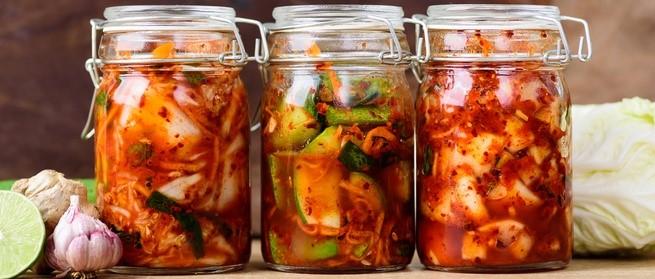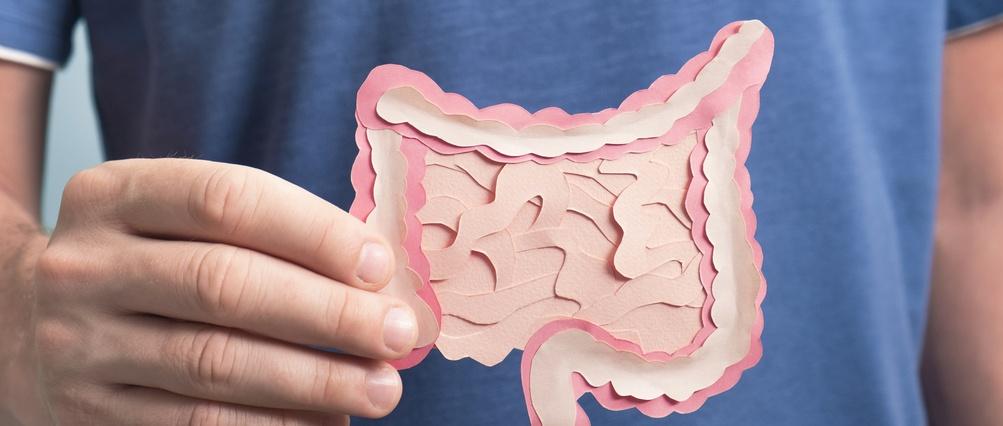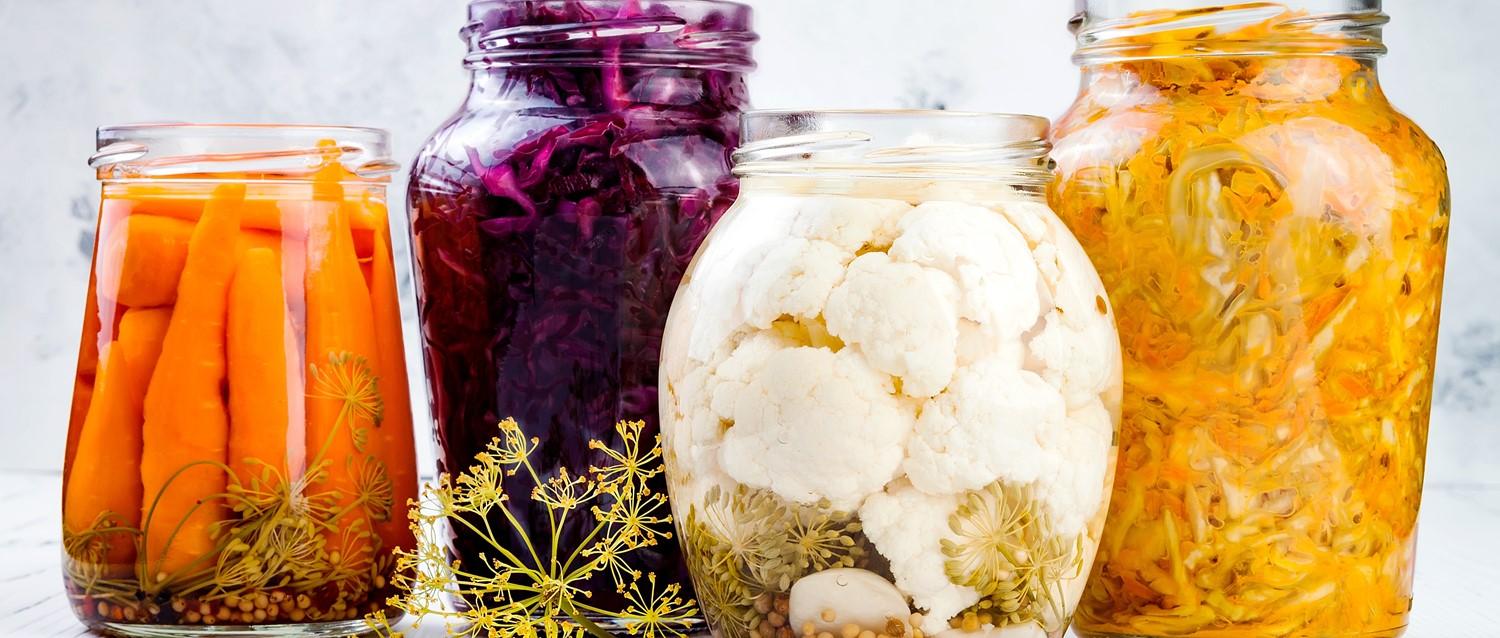
The 5 best probiotic foods for a healthy gut
Peer reviewed by Dr Colin Tidy, MRCGPLast updated by Amberley DavisLast updated 24 Oct 2023
Meets Patient’s editorial guidelines
- DownloadDownload
- Share
- Language
- Discussion
Actor Margot Robbie relied on them to prepare for her starring role in 'Barbie', so what is it about probiotic foods that help us feel and look good inside and out?
Probiotic foods contain a large number of 'good bacteria', so-called because they play a key role in the health and function of your gut. For this reason, many people experiencing persistent and uncomfortable digestive problems - such as bloating, gas, or diarrhoea - are incorporating probiotic foods into their diets. Which foods contain the most probiotics, and what does current research say?
In this article:
Continue reading below
What are probiotic foods?
In recent years, the word 'probiotic' has been plastered on yoghurt pots, cereal bars, and fermented drink labels in the supermarket. These products claim to boost the number of probiotics in your gut, which in turn is thought to keep it healthy.
We all naturally have probiotics, regardless of whether we add them in our diet consciously through probiotic foods or supplements. These probiotics are tiny creatures that live in the digestive system. They go by several different names - to scientists they are known as microbes; to the public they are often called 'beneficial' or 'good' bacteria.
Probiotics for gut health
Having a healthy number of probiotics can support your gut health and help to protect you from digestive discomfort and problems. A healthy gut can have far-reaching benefits and could help to protect against or improve several health conditions.
High probiotic levels may:
Make it easier to digest food and absorb important vitamins and minerals1.
Ease your symptoms if you have irritable bowel syndrome (IBS).
Reduce common digestive problems such as diarrhoea, bloating, gas, and constipation2.
Reduce lactose intolerance symptoms3.
Improve symptoms linked to ulcerative colitis and Crohn's disease4.
Help to keep harmful substances out of your body by strengthening the intestinal barrier of your gut5.
Strengthen your immune system which helps to protect you from illness6.
Benefit pregnant women and reduce pregnancy complications7.
Protect you from infections, including the common cold and urinary tract infections8.
Help people with type 2 diabetes control their blood sugar levels9.
In babies, help with the development of the digestive and immune system.
However, while many study results are promising, others are mixed and research into probiotics for gut health remains limited. If you have a digestive health concern, seek the advice of your pharmacist or doctor. They may suggest treatments that are backed by stronger evidence.
What foods contain probiotics?
Back to contentsFermented foods are naturally high in probiotics. This is because fermentation involves growing live and active cultures, called live bacteria. These natural probiotic foods are healthy and safe to eat, whether you are concerned about your gut health or not.
If you do have a digestive problem - such as regular diarrhoea, bloating, or IBS - you can consume them regularly as a form of complementary treatment, alongside any medication.
Continue reading below
What are the best probiotic foods?
Back to contentsThe following probiotic foods have shown promising health benefits in some people.
Plain yoghurt
Plain yoghurt which hasn't been sweetened is rich in probiotics. It is also one of the most easy to find fermented probiotic foods, as natural yoghurt generally isn't limited to large supermarkets or speciality stores.
Yoghurt is made through fermenting milk. The probiotics in this milk consume the naturally occurring milk sugars, turning it into lactic acid. This process may sound peculiar, but this is what gives plain yoghurt the creaminess and slightly sour taste that many of us enjoy.
Probiotic foods need to be consumed on a regular basis, and to contain enough probiotics, for us to see noticeable health benefits. Because of this, some yoghurts also have added probiotics for gut health and overall health. Experts suggest consuming around 10 billion CFU (colony forming units) per day10. This is the measure of good bacteria in probiotic foods and probiotic supplement products. However, it's important to note that not everyone will feel the benefits of probiotics, regardless of how much they consume.
Kefir
In recent years, you may have noticed kefir products appearing in the dairy section of your local supermarket. This is a drink made from fermented milk, kefir grains, yeast, and friendly bacteria.
Kefir is one of the most widely researched fermented probiotic foods. There has been at least one high-quality randomised controlled trial demonstrating that kefir destroys harmful gut bacteria and helps symptoms of lactose intolerance11.
Some experts believe that probiotic foods such as kefir may also be useful in cancer prevention and treatment. Studies indicate that kefir can block some cancer cells, including breast cancer, lung cancer, and colorectal cancer12. Research into this area is ongoing.
Sauerkraut
Sauerkraut is cabbage that has been fermented by lactic acid bacteria, giving it a distinct sour taste. Originating in Germany, it is often used as a side dish, and has a long shelf-life. The fermentation of this probiotic food has been studied for many years.
As well as helping to resolve problems of the gut, such as constipation, it is also thought that the good bacteria in sauerkraut may be useful in the protection against cancer, obesity, and high cholesterol, amongst other health issues13.
Kimchi
Another popular probiotic food made from fermented cabbage is kimchi, this time originating from Korea. Compared to sauerkraut, kimchi is fermented with many more ingredients - including other vegetables and seasonings - which gives it an even more complex micro-ecosystem of live bacteria strains.
As Kimchi is also a good source of probiotic lactic acid bacteria, this probiotic food has the same potential health benefits as sauerkraut.
Kombucha
Kombucha is a fermented tea drink that's available in many UK stores and supermarkets. Fermentation begins when sugar and several probiotic bacteria strains are added to green or black tea and then left for a week or longer. Kombucha contains a diverse range of good bacteria, including lactic acid, acetic acid, fungi, and yeasts.
Yet, while these probiotic properties are promising, there's little direct evidence of kombucha's benefits for human health14. Most experts agree that more robust research is needed.
Do probiotics work?
Back to contentsFermented foods provide a range of health benefits. As most also contain antioxidants, anti-inflammatory, and immune-supporting properties, these benefits extend beyond probiotics and gut health.
However, experts generally agree that more research is needed in the form of high-quality clinical human trials.
Continue reading below
Are probiotics safe?
Back to contentsThe choice to try food sources rich in probiotics is entirely yours. These foods are generally considered safe to consume on a regular basis and few reports of negative outcomes can be found.
Are all pickled food types probiotics?
Back to contentsIt's easy to mistake pickled foods for fermented foods, but there is a key difference when it comes to what's good for your gut. In fact, most pickled foods don't contain beneficial probiotics for gut health.
Pickling: Uses an acid such as brine (salty water) or vinegar to preserve food. It is this acid that gives these foods their sour taste. Only foods pickled with salts, and not vinegar, contain probiotics.
Fermenting: Always involves a chemical reaction between a food's sugars and bacteria. It is this reaction that results in the sour flavour.
What about unfermented foods?
Back to contentsThese days, there are many unfermented food products on the market that have had probiotics added to them. According to the National Institutes of Health (NIH), whether these manufactured probiotic foods can truly count as probiotics comes down to three factors:
How many micro-organisms they contain.
If they survive digestion.
If the bacteria strain they contain has health benefits.
Common manufactured probiotic foods include some:
Milk drinks.
Cereals.
Cereal bars.
Teas.
Juices.
Tips for buying and consuming fermented probiotic foods
To ensure a product contains active probiotics:
To help tell the difference between pickled and fermented foods you can check where the product is stored in your supermarket. You will likely find fermented foods in the refrigerated section.
Look for the words 'naturally fermented' on the label.
When buying yoghurt, check it has not been heat treated as this can kill good bacteria.
Check for high sugar, sweetener, or preservative content, as this can upset the stomach when consumed in large amounts and can cancel out probiotic benefits.
Avoid products that have been pasteurised as this process kills beneficial bacteria.
When opening a jar of fermented vegetables, bubbles in the liquid indicate live probiotics.
If adding fermented foods to hot food, mix them in immediately before serving or add them as a topping, as high heat can kill the bacteria.
Further reading
Back to contentsJudkins et al: Probiotics, nutrition, and the small intestine.
Hungin et al: Systematic review: probiotics in the management of lower gastrointestinal symptoms.
Ibrahim et al: Fermented foods and probiotics: an approach to lactose intolerance.
Camilleri: Human intestinal barrier: effects of stressors, diet, prebiotics, and probiotics.
Fata et al: Probiotics and the gut immune system: indirect regulation.
Huang and Jiang: Effect of probiotic supplementation in pregnant women.
Akgul and Karakan: The role of probiotics in women with recurrent urinary tract infections.
Sharifi et al: Kefir: a powerful probiotics with anticancer properties.
Kumar Das et al: Lactic acid bacteria in food biotechnology: chapter 3.
Kapp and Sumner: Kombucha: a systematic review of the empirical evidence of human health benefit.
Judkins et al: Probiotics, nutrition, and the small intestine.
Hungin et al: Systematic review: probiotics in the management of lower gastrointestinal symptoms.
Ibrahim et al: Fermented foods and probiotics: an approach to lactose intolerance.
Ghouri et al: Systematic review of randomized controlled trials of probiotics, prebiotics, and synbiotics in inflammatory bowel disease.
Camilleri: Human intestinal barrier: effects of stressors, diet, prebiotics, and probiotics.
Fata et al: Probiotics and the gut immune system: indirect regulation.
Huang and Jiang: Effect of probiotic supplementation in pregnant women.
Akgul and Karakan: The role of probiotics in women with recurrent urinary tract infections.
Rittiphairoj et al: Probiotics contribute to glycemic control in patients with type 2 diabetes mellitus.
National Institutes of Health: Probiotics.
Dimidi et al: Fermented foods: definitions and characteristics, impact on the gut microbiota and effects on gastrointestinal health and disease.
Sharifi et al: Kefir: a powerful probiotics with anticancer properties. https://pubmed.ncbi.nlm.nih.gov/28956261/
Kumar Das et al: Lactic acid bacteria in food biotechnology: chapter 3. https://www.sciencedirect.com/science/article/abs/pii/B9780323898751000134
Kapp and Sumner: Kombucha: a systematic review of the empirical evidence of human health benefit.https://www.sciencedirect.com/science/article/pii/S1047279718307385
Patient picks for Gut health

Diet and nutrition
What is your gut microbiome?
Let’s talk about something small that has a big impact on your health - the gut microbiome. This hidden universe of microbes plays an important role in your wellbeing. How you treat these tiny residents can make a world of difference to how you feel.
by Victoria Raw

Diet and nutrition
How gut bacteria affect mood, focus and brain health
There is emerging scientific evidence that the gut microbiome can influence brain health - from mood and focus to neurological diseases such as multiple sclerosis and Parkinson's. We ask the experts about this link and how best to look after the gut bacteria to support brain health.
by Sally Turner
Continue reading below
Article history
The information on this page is peer reviewed by qualified clinicians.
Next review due: 24 Oct 2026
24 Oct 2023 | Latest version
2 Jun 2022 | Originally published
Authored by:
Amberley Davis

Ask, share, connect.
Browse discussions, ask questions, and share experiences across hundreds of health topics.

Feeling unwell?
Assess your symptoms online for free
Sign up to the Patient newsletter
Your weekly dose of clear, trustworthy health advice - written to help you feel informed, confident and in control.
By subscribing you accept our Privacy Policy. You can unsubscribe at any time. We never sell your data.